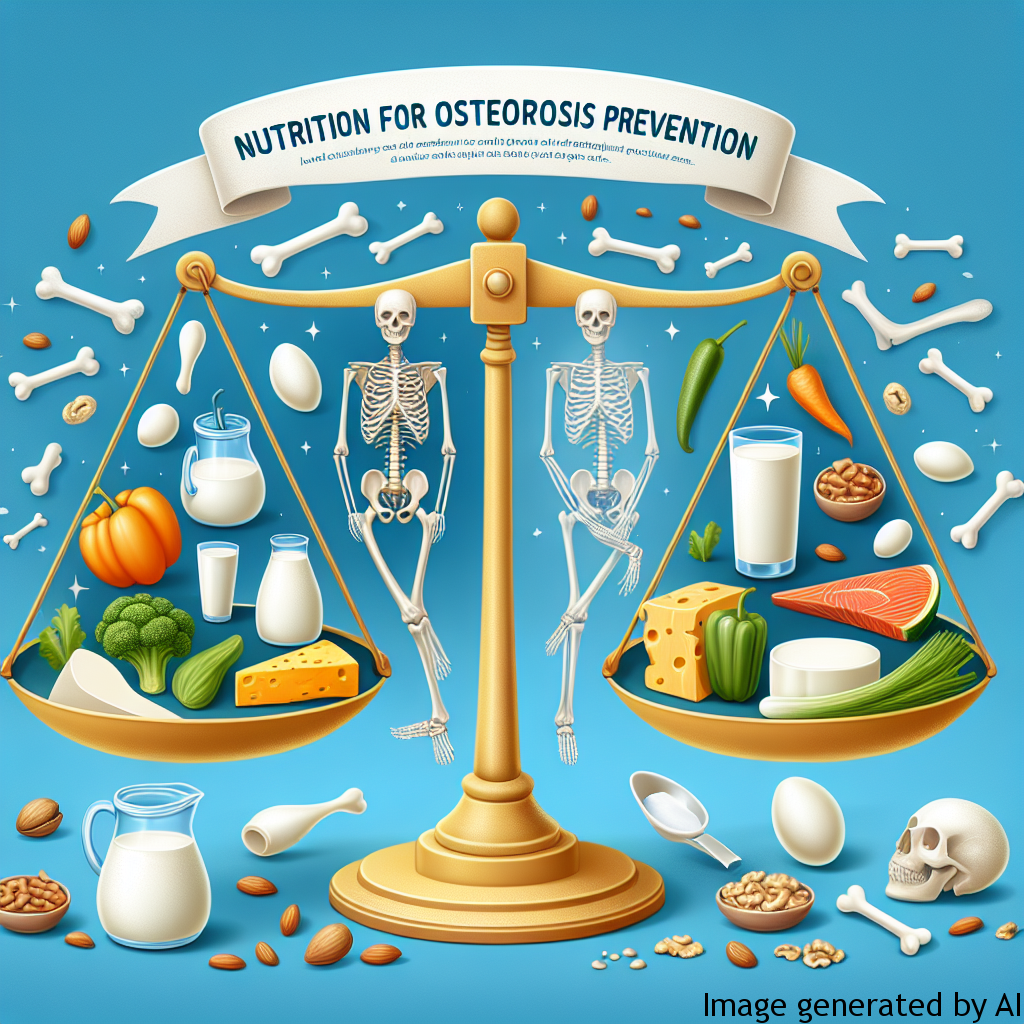Introduction
Osteoporosis is a disease characterized by low bone mass and deterioration of bone tissues, leading to weakened bones and increased susceptibility to fractures. Though it is commonly referred to as a ‘silent disease’ as it often remains undiagnosed until fractures occur, changing aspects of one’s lifestyle including healthy eating choices can help prevent its onset. This article presents insight into how proper nutrition can contribute to osteoporosis prevention.
Understanding Dietary Needs
Adopting a diet rich in certain nutrients is crucial for maintaining healthy bones and mitigating the risk of osteoporosis.
Calcium
Calcium is a key building block for bones. Without sufficient calcium, the body breaks down bones to get the calcium it needs for other functions. Milk, cheese, and other dairy foods are rich in calcium, as are dark green leafy vegetables, fortified cereals and fruit juices.
Vitamin D
Vitamin D helps the body absorb calcium. Rely on food sources like fatty fish, fortified dairy products, egg yolks, and fortied cereals. Also, brief exposure to sunlight aids in the body’s production of Vitamin D.
Protein
Higher protein intake can support bone health. Sources of good protein include lean meats, poultry, fish, dairy products, nuts and seeds, and legumes.
Phosphorus
Apart from calcium, phosphorus also plays a crucial role in bone health. Foods rich in phosphorus include dairy products, fish, meat, poultry, and whole grains.
Factors That Influence Bone Loss
Other than poor nutrition, various other factors can significantly increase the risk of osteoporosis, such as age, certain medical conditions and medications, sedentary lifestyle, smoking and drinking alcohol. A holistic approach to osteoporosis prevention should address these issues along with ensuring a nutritious and balanced diet.
Nutrition-Based Prevention Strategies
Proactively addressing nutrition can be instrumental in preventing osteoporosis. Here are some key strategies:
- Maintain a balanced diet rich in calcium and Vitamin D.
- Choose foods low in sodium to minimize calcium loss.
- Include plenty of fruits and vegetables in your diet, as they provide nutrients that promote bone health.
- Limit intake of alcohol and caffeinated beverages as they can inhibit calcium absorption.
Conclusion
While it’s clear that no single lifestyle modification guarantees prevention of osteoporosis, adopting a balanced, nutrient-rich diet can drastically lower your risk. It’s recommended to consult a healthcare professional or a dietitian if you have concerns about osteoporosis or your diet. This can help you understand your risk factors for osteoporosis and also guide your choice of prevention strategy.

